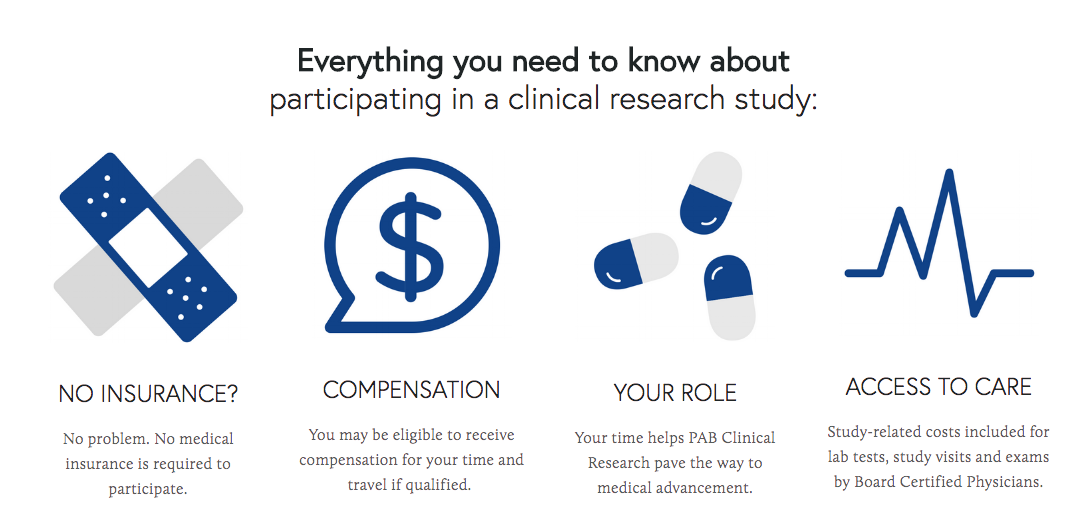Participating in a research study is an important part of furthering scientific breakthroughs and milestones in medicine. Despite the benefits of participating in a research study, there is still some warranted apprehension on the part of potential participants about volunteering in a clinical study. So let’s dive in and help you decide if volunteering in a research study is right for you!
What is a research study?
Clinical studies are medical research studies where real people participate as volunteers. Clinical studies allow medical professionals and researchers to develop new means of treating and medicating diseases and ailments by testing these new methods on volunteers. Research studies are monitored by the National Institutes of Health, the FDA, and the USDA to ensure that the studies are in line with safety guidelines.
The Benefits
Oftentimes, participants in medical studies have access to treatment for specific ailments before they are available to the public and for no monetary cost to them. Patients with newly diagnosed medical problems of all ages are welcome to participate in studies about their disease or medications related to their disease if they meet the criteria for the study. Volunteers can also take pride in knowing that their participation is furthering the process of finding new medicine and methods of treatment for diseases, and ultimately help make scientific breakthroughs.
The Risk
It’s important to know what you’re getting yourself into during a research study. Just as in most routine medical care, there are some risks, so it’s important to understand the chance and degree of harm. Most studies pose only the risk of minor discomfort, lasting a short duration, while others could post a small chance that a participant would need medical attention. As with any decision about your health, be sure to weigh the benefits against the potential risks.
Confidentiality
There are several patient protections to safeguard participants in research studies and ensure confidentiality. These include the Patient Bill of Rights and Hospital Accreditation to ensure that an international review board must approve every new study at a hospital or medical facility before it can begin. Patients also receive all the facts and details about the clinical trial before they decide whether to take part, a practice known as informed consent.
Compensation
Sometimes volunteers are compensated for their participation, either with a standard compensation for the volunteer’s time, or reimbursement for travel and expenses while participating in the study.
How do I participate?
To participate in a local or national research study, patients and healthy volunteers must meet certain specific requirements set forth by the researchers. These criteria differ from one clinical study to the next and can range from age to health conditions. Florida Pulmonary Associates offer research studies in Brandon for qualified volunteers interested in participating.
Making the Decision
Before deciding to participate in a medical research study, it’s important to feel confident about what you will be doing. Discuss the particulars of the study with your doctor and make sure your family members are also comfortable with your participation. To take part in some clinical studies, a referral is required from a medical practitioner to be approved as a volunteer.
The decision to participate in a research study is ultimately a personal one. As with all health treatments and medical care, there can be risks and benefits associated with the clinical trial. Weigh the benefits against and perceived or potential risks before deciding. And know that the researchers and medical professionals put specific processes in place to ensure volunteers are informed and cared for during the study.


